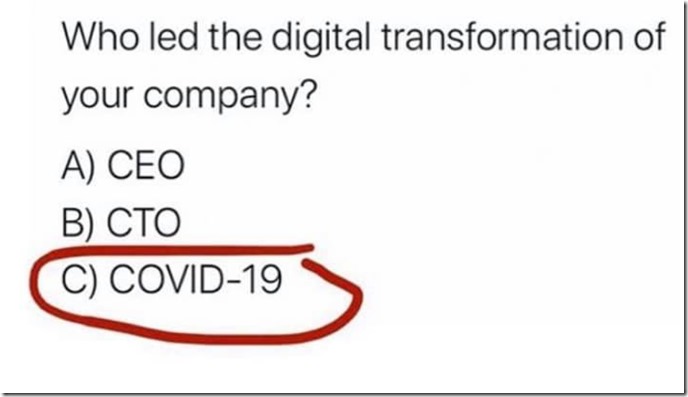Necessity is the mother of re-invention. And the necessary precautions of the coronavirus pandemic are transforming the business landscape. The current crisis is mostly accelerating existing trends. The wave of ecommerce is so last millennium, but the degree to which it has penetrated our lives in the past six months is nonetheless unprecedented. The same for remote working teleconferencing, logistics, etc.
Commerce has always evolved as the environment of technology, geopolitics and economics shifted spurring adaptations to survive. But the course to true evolve never did run smooth. Geoffrey Moore compellingly modelled how technology diffuses through lumpy stages with a particular wide “chasm” to “cross” between adoption by “early adopters” and “early majority”. His model echoed evolutionary scientist Stephen Jay Gould’s “Punctuated Equilibrium” which argued that evolution experiences periods of dramatic change over short periods. The COVID19 period is one such leap of change.
Metaphorically, the tide of innovation has been rising precipitously while businesses built cultural levees to mete out just how much transformation dripped onto their fields. That is until the coronavirus crisis busted the dams completely.
The pandemic is one of those punctuated bursts of change in our workstyle and lifestyle. In short, needs-must imperatives are wiping away the obstacles which previously had served as speed bumps to the march of progress:
- Fear – “Shirk from home”: Old school managers have been afraid to try new approaches to work driven from a mixture of fear of the unknown and fear of control loss.
- Skills – “You’re on mute!”: As with many situations, fear and ignorance are often intertwined. Not knowing specific outcomes that managers really wanted from their workers, how to measure those outcomes, and how to support their performance remotely have all stood in the way.
- Tools – “What’s the payback?”: Remote working isn’t just kicking people out of the office and cancelling the lease. An upfront investment in tools and skilling is required. Sometimes these investments are as simple as just getting people laptops. But requirements for security, communication (eg. videoconferencing), collaboration (eg. virtual whiteboarding, document sharing) all come with a cost in time and money that most businesses have preferred to delay.
- Habits – “We’ve always done it this way”: One of the most intractable obstacles in any change is habit.
The tectonic plates of business change are creeping by the millimeter until an earthquake erupts which shakes up everything. And COVID19 have been a 9+ on the Richter Scale of business.
